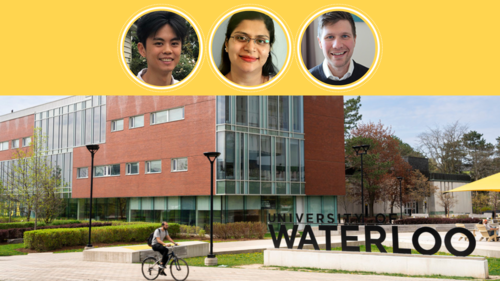Graduate Studies and Postdoctoral Affairs (GSPA)
Needles Hall, second floor, room 2201
As the University of Waterloo launches its annual National Postdoc Appreciation Week (NPAW), we celebrate three Waterloo postdoctoral scholars have been awarded the Banting Postdoctoral Fellowship, as announced on Tuesday, August 29.
The Banting Postdoctoral Fellowships program provides funding to the very best postdoctoral applicants, both nationally and internationally, who will positively contribute to the country’s economic, social and research‑based growth.

Across Canada, 70 researchers will receive $70,000 for two years, with a total of $9.8 million awarded nationally.
“The Banting Postdoctoral Fellowships support transformative research that can advance our understanding of emergent fields and address global challenges,” says Dr. Jeff Casello, associate vice-president of graduate studies and postdoctoral affairs. “We are thrilled to welcome these new scholars to our community.”
The University of Waterloo attracts world-class postdoctoral scholars who transform and disrupt the status quo and we are always delighted to support them as they continue to pursue personal and professional goals that will have positive impacts on Canadian society’s future.
“We are excited to have these emerging scholars join the Faculty of Science,” says Dr. Chris Houser, dean of the Faculty of Science. “Their transformational research pushes the boundaries of knowledge and imagination from microbial reactions to distant galaxies, and I look forward to learning the outcomes of their research.”
Read the full story and meet the postdocs.
Originally published on Waterloo News
Graduate Studies and Postdoctoral Affairs (GSPA)
Needles Hall, second floor, room 2201
The University of Waterloo acknowledges that much of our work takes place on the traditional territory of the Neutral, Anishinaabeg and Haudenosaunee peoples. Our main campus is situated on the Haldimand Tract, the land granted to the Six Nations that includes six miles on each side of the Grand River. Our active work toward reconciliation takes place across our campuses through research, learning, teaching, and community building, and is co-ordinated within the Office of Indigenous Relations.